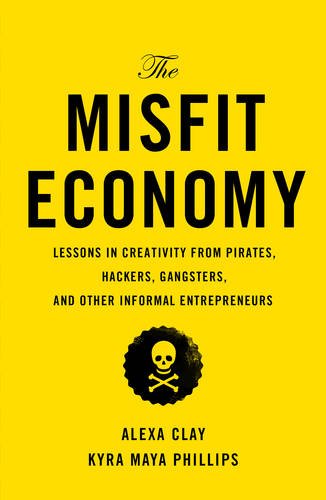The Misfit Economy: Lessons in Creativity from Pirates, Hackers, Gangsters and Other Informal Entrepreneurs
A book that argues that lessons in creativity, innovation, salesmanship, and entrepreneurship can come from surprising places: pirates, bootleggers, counterfeiters, hustlers, and others living and working on the margins of business and society.Who are the greatest innovators in the world? You’re probably thinking Steve Jobs, Thomas Edison, Henry Ford. The usual suspects. This book isn’t
A book that argues that lessons in creativity, innovation, salesmanship, and entrepreneurship can come from surprising places: pirates, bootleggers, counterfeiters, hustlers, and others living and working on the margins of business and society.
Who are the greatest innovators in the world? You’re probably thinking Steve Jobs, Thomas Edison, Henry Ford. The usual suspects.
This book isn’t about them. It’s about people you’ve never heard of. It’s about people who are just as innovative, entrepreneurial, and visionary as the Jobses, Edisons, and Fords of the world, except they’re not in Silicon Valley. They’re in the street markets of Sao Paulo and Guangzhou, the rubbish dumps of Lagos, the flooded coastal towns of Thailand. They are pirates, slum dwellers, computer hackers, dissidents, and inner city gang members.
Across the globe, diverse innovators operating in the black, grey, and informal economies are developing solutions to a myriad of challenges. Far from being “deviant entrepreneurs” that pose threats to our social and economic stability, these innovators display remarkable ingenuity, pioneering original methods and practices that we can learn from and apply to move formal markets.
This book investigates the stories of underground innovation that make up the Misfit Economy. It examines the teeming genius of the underground. It asks: Who are these unknown visionaries? How do they work? How do they organize themselves? How do they catalyze innovation? And ultimately, how can you take these lessons into your own world?







Comments